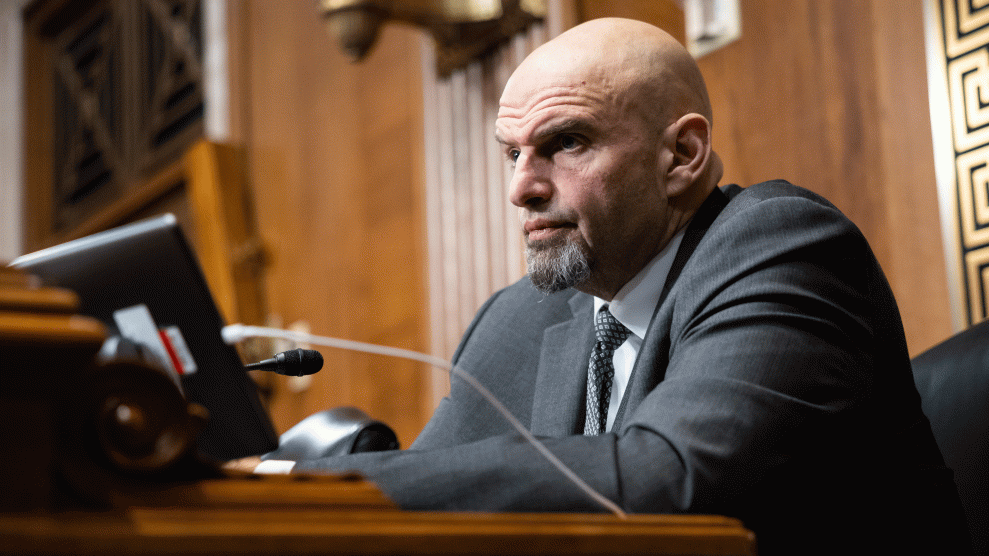
Francis Chung/Politico via AP
On February 16, John Fetterman, the first-term Democratic senator from Pennsylvania, checked himself into Walter Reed National Military Medical Center to receive treatment for depression. Fetterman, who defeated Republican Mehmet Oz in one of last fall’s tightest and most expensive races, had been in office for a little more than a month and was still dealing with the effects of a stroke he suffered in 2022.
Fetterman never fully stopped working—he was briefed every morning by his chief of staff, according to the New York Times, and he introduced a bill last month relating to railroad safety. But he was devoting the bulk of his time to his own recovery. Evidently, he’s made significant progress. Fetterman was discharged on Friday. He will return home to Pennsylvania for two weeks, and plans to return to the Capitol on April 17 when the Senate resumes its business after a spring recess.
In an interview with CBS News, Fetterman elaborated on the experiences that had brought him to Walter Reed. He was losing his appetite and struggling to get out of bed. “It’s like, you just won the biggest race in the country, and the whole thing about depression is that, objectively you may have won, but depression can absolutely convince you that you actually lost,” he said. “And that’s exactly what happened. And that was the start of a downward spiral.”
Six weeks after entering Walter Reed National Military Medical Center for inpatient treatment for depression, Sen. @JohnFetterman shares his struggle with depression, his health, and more in an intimate interview with Jane Pauley this "Sunday Morning." pic.twitter.com/3o2926I48B
— CBS Sunday Morning 🌞 (@CBSSunday) March 31, 2023
Whatever you think of Fetterman and the kind of senator he will or won’t be, it’s great to see him on the mend, speaking openly about the health issues he’s struggled with.
“I will have more to say about this soon, but for now I want everyone to know that depression is treatable, and treatment works,” he said in a statement on Twitter. “This isn’t about politics—right now there are people who are suffering with depression in red counties and blue counties. If you need help, please get help.”












